Stellbrink IP wins Intellectual Property Awards as ‘Best IP Management Consultants’
 We are proud that we have one Acquisition International Magazine’s Intellectual Property Awards 2016 as ‘Best IP Management Consultants‘!
We are proud that we have one Acquisition International Magazine’s Intellectual Property Awards 2016 as ‘Best IP Management Consultants‘!

Cell: +49 (0)171 5237959
 We are proud that we have one Acquisition International Magazine’s Intellectual Property Awards 2016 as ‘Best IP Management Consultants‘!
We are proud that we have one Acquisition International Magazine’s Intellectual Property Awards 2016 as ‘Best IP Management Consultants‘!
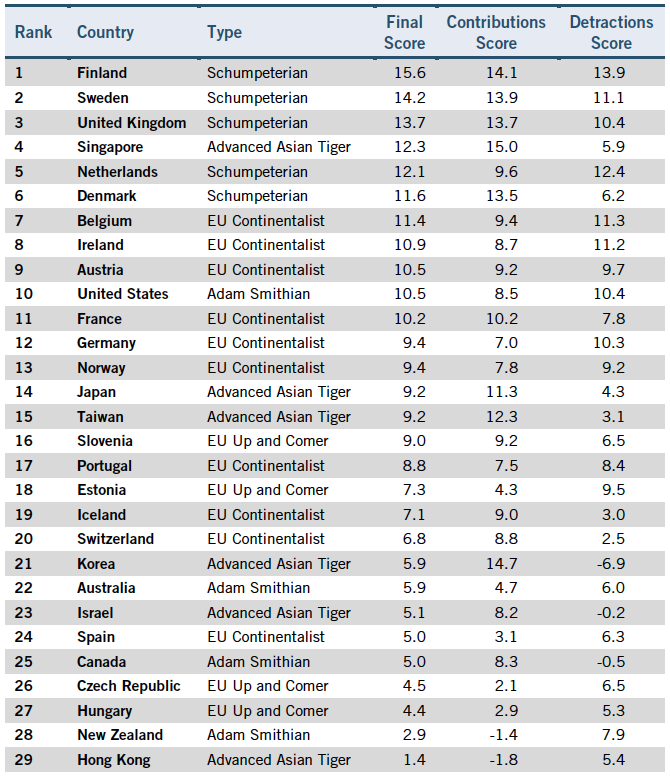 The Information Technology and Innovation Foundation (ITIF), a U.S. think tank on technology policy, delivered its ranking of more than 50 countries concerning their impact on global innovation. The report considers worldwide per capita contribution for supporting innovation. The researchers considered both the funding allocated for research and education as well as the structure of the tax system in the chosen countries. Environment and conditions that could adversely impact innovative capacity were penalized by point deduction. Among other factors, a weak patent system had a negative result on the score. The final ranking was between 15.6 points for the worldwide innovation leader Finland and negative 20.1 points for Argentina. Sweden and the UK followed close behind Finland. Austria was ninth in the ranking. Germany scored 9.4 points landing on the twelfth place, with Switzerland settling for the twentieth place. The U.S. reached a modest tenth place. Germany benefited not from a direct promotion of innovation, but rather from a good legal and political framework. Switzerland was downgraded due to what the researchers viewed as obstructive regulations – as for innovation promotion, it scored higher than Germany.
The Information Technology and Innovation Foundation (ITIF), a U.S. think tank on technology policy, delivered its ranking of more than 50 countries concerning their impact on global innovation. The report considers worldwide per capita contribution for supporting innovation. The researchers considered both the funding allocated for research and education as well as the structure of the tax system in the chosen countries. Environment and conditions that could adversely impact innovative capacity were penalized by point deduction. Among other factors, a weak patent system had a negative result on the score. The final ranking was between 15.6 points for the worldwide innovation leader Finland and negative 20.1 points for Argentina. Sweden and the UK followed close behind Finland. Austria was ninth in the ranking. Germany scored 9.4 points landing on the twelfth place, with Switzerland settling for the twentieth place. The U.S. reached a modest tenth place. Germany benefited not from a direct promotion of innovation, but rather from a good legal and political framework. Switzerland was downgraded due to what the researchers viewed as obstructive regulations – as for innovation promotion, it scored higher than Germany.
Stellbrink IP sees this as another warning sign that innovation landscape in Germany needs to be actively supported.
 Psychoses typically commence in the most productive and critical period of life – late adolescence and early adulthood. In around 75-90 percent of the persons who develop the full-blown illness, there are early symptoms like lacking concentration, mood swings, exhaustion and reduced performance. To date, it is hard to say, whether such a psychological crisis will develop into a psychotic disorder. This is where the European research project PRONIA sets in. The aim of the researchers from five European countries and Australia is to develop an innovative prognostic tool on the basis of self-learning algorithms.
Psychoses typically commence in the most productive and critical period of life – late adolescence and early adulthood. In around 75-90 percent of the persons who develop the full-blown illness, there are early symptoms like lacking concentration, mood swings, exhaustion and reduced performance. To date, it is hard to say, whether such a psychological crisis will develop into a psychotic disorder. This is where the European research project PRONIA sets in. The aim of the researchers from five European countries and Australia is to develop an innovative prognostic tool on the basis of self-learning algorithms.
1700 study participants are being recruited for PRONIA in six European centres and one in Australia. PRONIA is aiming to raise the prognostic certainty for identifying future disease development to up to 90 percent. As a telemedicine application, PRONIA should be commercially available for medical practitioners and hospitals within the next five years.
The European Union has awarded PRONIA with 6 Million Euro within the 7th Framework Programme. The coordinator of the PRONIA project is PD Dr. Nikolaos Koutsouleris from the Psychiatric Clinic of the Ludwig-Maximilians-University in Munich. The study started on October 1st 2013 and will go on until October 2018.
Stellbrink IP and Arnason Stellbrink are pleased to be a part of that revolution and are very happy about the rising success of their client.
Find out more here.
Starship Technologies developed a self-driving robot that makes the transport of goods not only faster and cheaper, but also more eco-friendly.
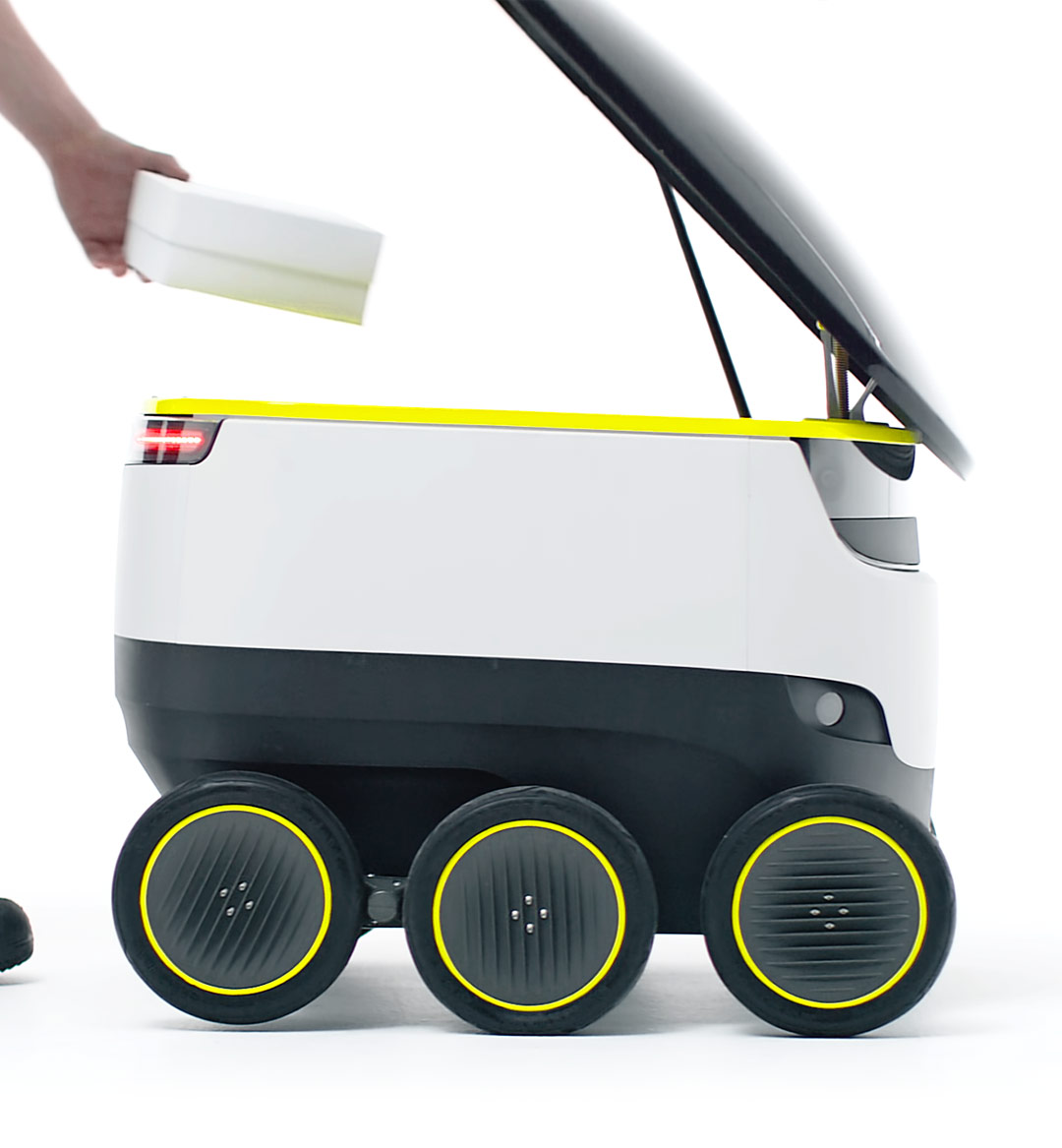 Starship Technologies is an internationally oriented start-up established by the Skype co-founders Ahti Heinla and Janus Friis. Their vision is to effectively and drastically reduce the costs, delivery time and ecological impact of deliveries. While the American competitors Google and Amazon test drones, the Starship robot drives on streets and sidewalks to its customers. This results in a key advantage: equipped with an integrated navigation and obstacle detection system, the robot moves autonomously without being a danger for other traffic participants. Nevertheless, staff members are able to interfere at any time, to see the surroundings from the perspective of the robot, and even to communicate with other people through the robot. Unlike drones, these robots don’t need to show consideration for air traffic and therefore save substantial effort regarding safety and other legal issues.
Starship Technologies is an internationally oriented start-up established by the Skype co-founders Ahti Heinla and Janus Friis. Their vision is to effectively and drastically reduce the costs, delivery time and ecological impact of deliveries. While the American competitors Google and Amazon test drones, the Starship robot drives on streets and sidewalks to its customers. This results in a key advantage: equipped with an integrated navigation and obstacle detection system, the robot moves autonomously without being a danger for other traffic participants. Nevertheless, staff members are able to interfere at any time, to see the surroundings from the perspective of the robot, and even to communicate with other people through the robot. Unlike drones, these robots don’t need to show consideration for air traffic and therefore save substantial effort regarding safety and other legal issues.
As already mentioned, the start-up is focused on the last important mile that the parcel travels from the warehouse to its customer. This will only cost 10% of the current price and will provide more convenience to the client. The robot will be able to carry two grocery bags’ equivalent worth of deliveries. The delivery will take five to thirty minutes and the customer can choose a narrow time slot for it. In the meantime, the route of the robot can be monitored with an app in real time and the delivery is protected from theft because the robot can only be opened by the customer through the app.
It is also important for the company that no more polluting carbon dioxide will be emitted. The robot is battery-powered and needs less energy than a normal light bulb.
Stellbrink IP is pleased to be a part of that revolution and very happy about the rising success of our client.
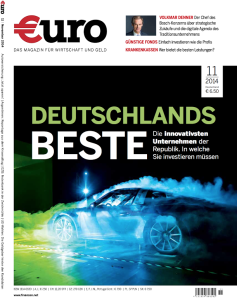 Together with one of the leading German business magazines, the €uro magazine, we have benchmarked 70 of the German publicly listed companies. Our findings are dealt with in the title story of the November 2014 edition of €uro:
Together with one of the leading German business magazines, the €uro magazine, we have benchmarked 70 of the German publicly listed companies. Our findings are dealt with in the title story of the November 2014 edition of €uro:
We can measure and benchmark innovation forces with all our global data and our skills in the fields of innovation management, IP practice, data acquisitions and analyses. This makes the difference and allows picking the right indicators for almost any criteria of interest. For the innovation benchmarking we have developed a model on the basis of business and technological figures, global patent data, stock data and have also considered peculiarities of industrial sectors as well as economic cycles.
Our model has undergone several tests. The DIX, Germany’s new stock innovation index, developed by the €uro magazine and us shows that the companies we considered to be the most innovative ones have clearly outperformed compared to the other publicly listed companies. This demonstrates that consequent and systematic innovation activities pay well off: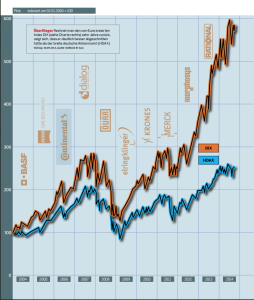
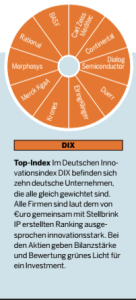
New big steps in development and increasing speeds in most fields of industry make it necessary to analyze the situation carefully and in detail. Managers, investors, economists, start-ups, analysts, business consultants and many others will appreciate our in depths insights with finely granulated technology clusters, benchmarks and trend analyses.
Should you be interested in our findings, should you have any remarks or should you like to receive our periodic Newsletter, please let us know.
Not to forget, we would be happy to clarify the status quo for you and to make your investments fit for the future.
The third largest German automotive supplier ZF headquartered in Friedrichshafen is in talks with the American automotive supplier TRW about a possible takeover. As the world’s largest independent transmission manufacturer, ZF is not listed on the stock exchange, but currently in possession of the owner. However, ZF would not only catch up to its greatest competitor Continental and Bosch, but with TRW, its core business, fill a gap especially in the areas of electronics with video and radar systems. The CEO Stefan Sommer is anticipating to compete alongside the Internet giant Google for the promising future to develop autonomous driving technology. Google already started the race with his prototype Aptera, which was previously reported by Stellbrink IP extensively on May 28th. Read the Rest
Tokyo, July 2014: Already in the upcoming spring, the car manufacturer Toyota wants to sell its fuel cell-car and start exporting to USA and Europe in the summer. The starting price is cheaper than expected at around € 60,000. With extensive subsidies and tax breaks, the Japanese government wants to ensure that the market shares are backed up early and its auto industry stays highly competitive. In parallel, the current high production costs shall be significantly reduced by 2025, as well as the infrastructure being further defined. Read the Rest
Opposition is stirred against the digital revolution. For example, German Amazon employees in distribution centers or even taxi drivers, are resisting the placement of private chauffeurs through apps. It is very difficult to find the golden mean in the discussion about what is technically possible and socially desirable. On the one hand it is critical to question how far companies submit to the progress, but on the other hand, they must stay competitive, especially to China, Korea or the U.S. in order to continue to guarantee prosperity. It is therefore advisable to at least pro-actively pursue modernization and innovations as well as, to increase the pace of adaptability, if necessary. Read the Rest
Since smoking bans and dissuasive pictures of black lungs on cigarette boxes, the cigarette industry finds itself in a sales crisis. Therefore, many of the powerful tobacco manufacturers are now investing in the e-cigarette. A rapid growing market which offers a real alternative for more and more smokers. So far, the hardware is still handmade in China, but machines to drive the automation process are already being constructed in the Netherlands.
The federal government in Germany is skeptical of this upswing. The vaporized liquid is composed of the fumigation agent propylene glycol, which is indeed approved as a food additive but cannot cause respiratory irritation if inhaled. For this reason, the federal government wants to ban the e-cigarette for children and adolescents not to encourage a possible addictive behavior.
By late summer, the Federal Economics Minister Sigmar Gabriel wants to introduce a new stock-segment for companies and organizations together with the German Stock Exchange, called the “market 2.0”. The transition to enter capital markets for German start-up companys as well the issues of follow-up financing are to be facilitated, for young, modern, and creative entrepreneurs have trouble attaining capital and are lacking the option of follow-up financing. Read the Rest
